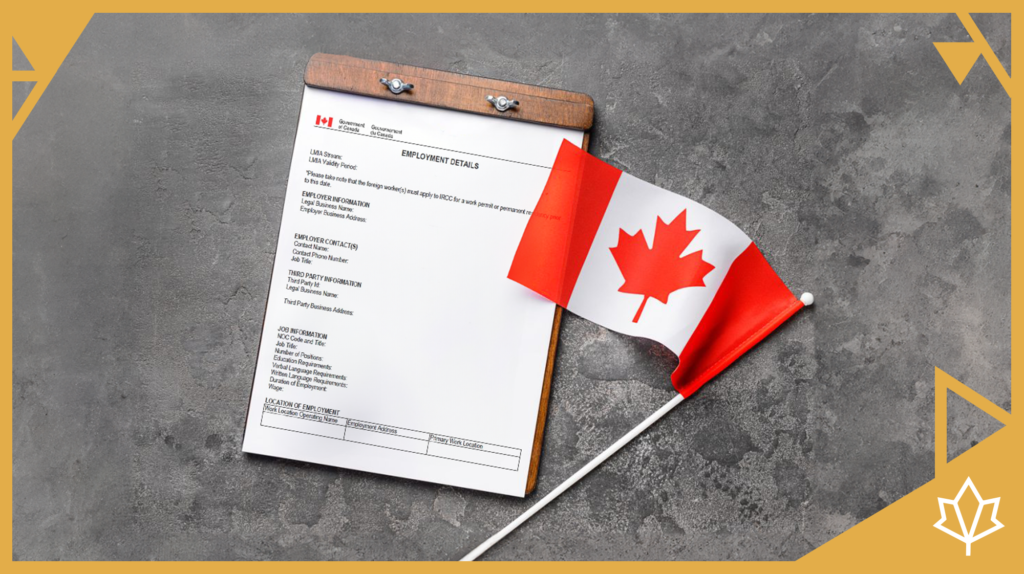As a Canadian employer, having skilled workers on staff is essential for maintaining productivity and meeting project deadlines. However, the domestic labour market may not always have the available talent you need. This is where the Labour Market Impact Assessment (LMIA) process comes in. This guide will provide a comprehensive overview of LMIAs, their importance, the application process, and how to manage it effectively.
In this article, you can learn about:
- What is an LMIA?
- Why are LMIAs important for Canadian Employers?
- The LMIA Application Process for hiring foreign workers
- What are the different types of LMIAs?
- Important Considerations and Tips for LMIA applications
- Recent Updates and Changes to LMIAs in Canada
What is an LMIA?
A Labour Market Impact Assessment (LMIA) is a document issued by Employment and Social Development Canada (ESDC) that employers must obtain before hiring foreign workers. An LMIA confirms that there is a need for a foreign worker to fill a job position and that no Canadian worker is available to do the job. Securing an LMIA is a critical step in bringing in the necessary expertise from abroad.
Why are LMIAs important for Canadian Employers?
LMIAs play a vital role in ensuring that the employment of foreign workers does not negatively impact the Canadian labour market. LMIAs validate the necessity to bring in specialized talent that is not readily available domestically.

The LMIA Application Process for hiring foreign workers:
Determine the Need: Identify and document the need for a foreign worker by demonstrating that efforts have been made to hire Canadian citizens or permanent residents for the position.
- Recruitment Efforts: Conduct and document a comprehensive recruitment process, including advertising the job on the Government of Canada’s Job Bank and other recruitment channels for at least four weeks.
- Application Preparation: Submit a detailed LMIA application to ESDC, including information about the job offer, recruitment efforts, and the foreign worker. The application fee is $1,000 CAD per worker.
- Review and Assessment: ESDC reviews the application, considering factors such as job impact, wages, working conditions, and the availability of Canadian workers. This process can take several weeks.
- Decision Notification: If the application is approved, a positive LMIA is issued. This document allows the foreign worker to apply for a work permit from Immigration, Refugees, and Citizenship Canada (IRCC).
What are the different types of LMIAs?
High-Wage Positions: For positions offering wages above the provincial/territorial median wage. Requirements include providing a transition plan to reduce reliance on foreign workers over time.
Low-Wage Positions: For positions offering wages below the provincial/territorial median wage. There are specific caps and restrictions, such as a limit on the proportion of low-wage temporary foreign workers in your workforce.
Skilled Trades-Specific Streams: Certain LMIA streams cater specifically to skilled trades, such as the Global Talent Stream, which offers expedited processing for highly skilled trades positions that are in demand.
Important Considerations and Tips for LMIA applications
- Start Early: The LMIA process can be lengthy. Begin the application process well in advance of when you need the worker to start.
- Detailed Documentation: Ensure all required documents and proofs are thorough and accurate to avoid delays or rejections.
- Compliance with Wage Requirements: Pay attention to the prevailing wage rates for your region and ensure that the offered wage meets or exceeds these standards.
- Stay Informed on Updates: Regularly check ESDC and IRCC websites for any updates or changes to LMIA requirements and procedures. Policies and guidelines can change, impacting your application.

Recent Updates and Changes to LMIAs in Canada
- Wage Adjustments: Ensure you are aware of any recent changes to the prevailing wage rates for your specific region and trade. Employers are required to review and apply the prevailing wage annually.
- Streamlined Processes for In-Demand Trades: Some skilled trades may benefit from faster processing times under specific LMIA streams like the Global Talent Stream.
Navigating the LMIA process is important for Canadian employers looking to hire foreign workers. By understanding the requirements and staying on top of the latest updates, you can effectively manage your workforce needs and ensure your business continues to thrive.
If the LMIA process seems overwhelming or you simply prefer to focus on your core business operations, our experts are here to help. Click here to learn more about how IVEY Group can support your business.



